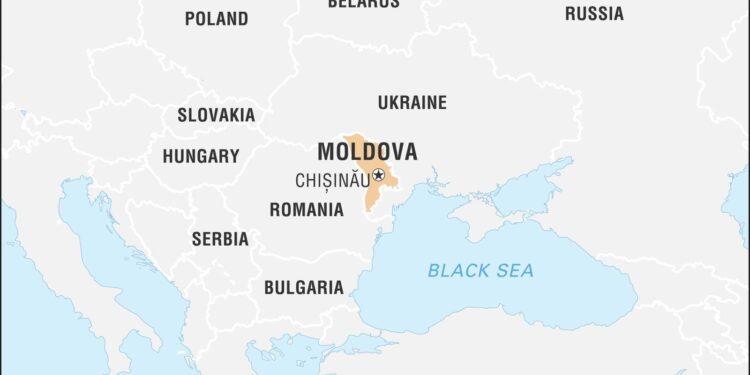Moldova faces increasing international pressure to strengthen its efforts against human trafficking, a persistent challenge undermining the country’s social and economic stability. Recent reports and expert analyses, highlighted by Balkan Insight, reveal that despite some progress, traffickers continue to exploit vulnerabilities, particularly among young and marginalized populations. As regional and global organizations call for tougher legislation and more effective enforcement, Moldova stands at a critical juncture in its fight to protect human rights and uphold the rule of law.
Moldova Faces Increased Pressure to Strengthen Anti-Trafficking Legislation
International watchdogs and local advocacy groups have ramped up calls for Moldova to enhance its legislative framework combating human trafficking. Recent reports highlight significant gaps in the current laws, which critics argue hinder effective prosecution and protection of victims. Key concerns revolve around outdated definitions, lenient sentencing, and insufficient victim support mechanisms, which collectively undermine efforts to dismantle trafficking networks operating in the region.
Experts emphasize the need for comprehensive reforms, urging the government to adopt stringent measures including:
- Broader legal definitions to encompass new forms of trafficking
- Enhanced victim protection protocols with psychological and legal support
- Increased penalties for traffickers to serve as effective deterrents
- Improved cross-border cooperation for cases with international dimensions
A recent comparative analysis of regional anti-trafficking legislation showcases where Moldova stands in relation to neighboring countries:
| Country | Penalty for Trafficking | Victim Support Programs | International Cooperation |
|---|---|---|---|
| Moldova | 3-7 years imprisonment | Limited | Moderate |
| Romania | 5-10 years imprisonment | Extensive | Strong |
| Ukraine | 4-8 years imprisonment | Moderate | Developing |
Experts Call for Enhanced Victim Support Services and Greater Law Enforcement Coordination
Leading voices in the fight against human trafficking emphasize the urgent need for Moldova to bolster its victim support mechanisms. Experts argue that current services often fall short of addressing the complex trauma experienced by survivors, calling for a comprehensive framework that includes psychological care, legal aid, and social reintegration programs. Enhanced funding and specialized training for frontline workers are viewed as critical components in creating an environment where victims can recover and rebuild their lives with dignity and safety.
In parallel, the call for stronger inter-agency cooperation within law enforcement is gaining momentum. Coordinated efforts between border control, police, and judicial bodies are essential to dismantle trafficking networks effectively. Experts highlight the importance of:
- Improved data sharing protocols
- Joint task forces focused on cross-border cases
- Regular training workshops on trafficking identification and investigation
| Support Area | Current Status | Recommended Action |
|---|---|---|
| Psychological Care | Limited Coverage | Expand Specialist Access |
| Legal Assistance | Fragmented Services | Centralize Support Centers |
| Law Enforcement Training | Infrequent Workshops | Mandatory Annual Sessions |
International Community Urges Comprehensive Training and Improved Cross-Border Cooperation
Global watchdogs and human rights organizations have collectively called for a robust enhancement in how Moldova approaches the prevention and prosecution of human trafficking cases. Key recommendations emphasize the importance of specialized training for law enforcement, judiciary members, and social workers to improve identification and support for victims. Experts argue that without such targeted capacity building, existing efforts risk being ineffective in dismantling sophisticated trafficking networks operating across national lines.
Equally critical is the push for reinforced regional cooperation, particularly with neighboring countries, to facilitate seamless communication and joint operations aimed at disrupting trafficking routes. Suggested measures include:
- Establishment of a centralized cross-border intelligence-sharing platform
- Regular joint training exercises for border patrol and customs officials
- Development of harmonized legal frameworks to streamline extradition and prosecution processes
| Priority Area | Proposed Action | Expected Impact |
|---|---|---|
| Training Programs | Specialized workshops and certifications | Improved victim identification and case handling |
| Data Sharing | Cross-border intelligence platform | Faster disruption of trafficking networks |
| Legal Harmonization | Unified extradition protocols | Enhanced prosecution success rates |
Wrapping Up
As Moldova continues to grapple with the persistent threat of human trafficking, calls from international organizations and civil society for stronger legal frameworks and enhanced enforcement grow louder. With the region’s vulnerability and the complex nature of trafficking networks, experts emphasize that only through coordinated efforts, increased resources, and sustained political commitment can meaningful progress be achieved. The coming months will be critical in determining whether Moldova can translate these urgent appeals into effective action on the ground, safeguarding the rights and lives of its most vulnerable citizens.
















